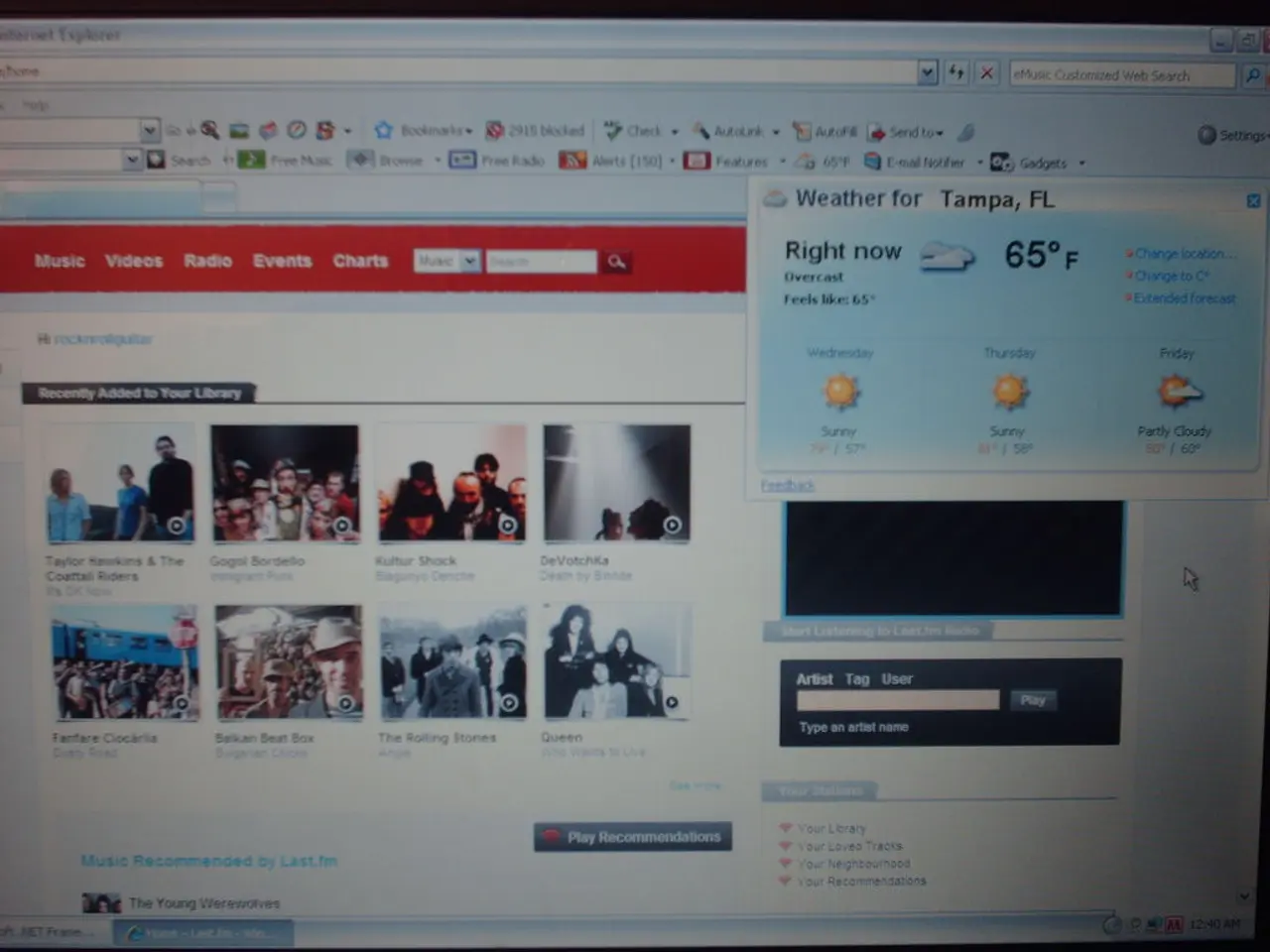Image hosting service, Imgur, eliminates explicit material, initiates removal process
In a significant move aimed at maintaining a safe and fun environment on the internet, Imgur has announced a new policy banning all NSFW (Not Safe For Work) content. This decision follows a similar move made by Tumblr in 2018 and comes with refreshed Terms of Service outlining the ban on explicit media.
The new policy will forbid all future and purge all pre-existing NSFW content posted by users. This includes any explicit or implied sexual acts, full or partial nudity, and content depicting pornography or nudity. The decision has been met with a GIF of a puppy, in an attempt to ease tension among its users.
Imgur's role as a third-party platform for media uploads to Reddit, including photos and videos, was significant until 2016 when Reddit introduced its own photo-uploading tool. Since then, Imgur has primarily been used in subreddits publishing pornographic content, as Reddit's in-house tool does not support NSFW media.
The ban on explicit media is part of Imgur's continued efforts to maintain a safe and positive online community. However, this move could potentially pave the way for another image hosting service to fill the vacuum as Reddit's chief porn destination.
Reflecting on Tumblr's decision to remove NSFW content in 2018, the impact on user engagement was profound. A significant shift in the type of content available on the platform led to a decline in user engagement for certain communities. Tumblr was known for hosting sex-positive communities, which were significantly impacted by the ban. Many users felt that the ban stifled creativity and freedom of expression, leading some to migrate to other platforms.
The ban also sparked debates about censorship and free speech, with many users feeling that the ban was an overreach of Tumblr's authority and an attack on artistic and personal expression. After the ban, Tumblr implemented algorithms to detect and flag NSFW content, but these were criticized for being overly aggressive, often incorrectly flagging non-NSFW content.
In recent developments, Tumblr has allowed limited NSFW content, potentially signaling an attempt to revive some of the sex-positive communities that were previously silenced. However, the company will focus on removing old, unused, and inactive content that is not tied to a user account from its platform.
Tumblr's removal bot mistakenly flagged images of dogs and kids instead of naked bodies, further stigmatizing the online sex work industry. Users are advised to download or save any images that they wish to save before they are removed under the new policy.
As Imgur embarks on this new journey, it remains to be seen how the community will adapt and what the long-term effects will be. However, one thing is certain: the internet is evolving, and platforms are constantly striving to create a safe and enjoyable space for all users.
- Imgur's decision to ban NSFW content on their platform may follow a trend in tech and social-media, echoing a similar move made by Tumblr in 2018.
- The entertainment and general-news landscape may experience shifts as Imgur's new policy could lead to the rise of another image hosting service, filling the vacuum left by Imgur in the pornographic content sector.
- In the realm of technology, platforms like Imgur and Tumblr make changes aimed at maintaining a safe and fun environment, sparking debates about censorship, free speech, and the impact on user engagement.
- As the future unfolds, one cannot ignore the growing importance of maintaining a positive online community and tech companies' role in shaping the internet, with their decisions influencing user behavior and platforms' respective roles in the wider tech and social-media landscape.




